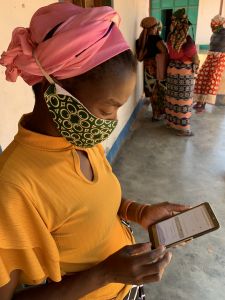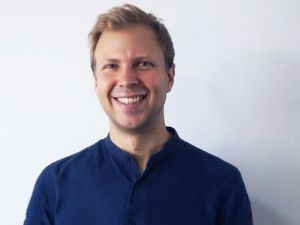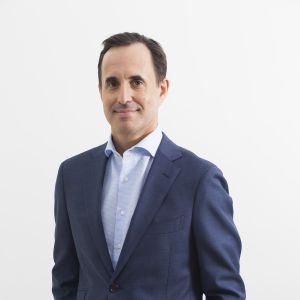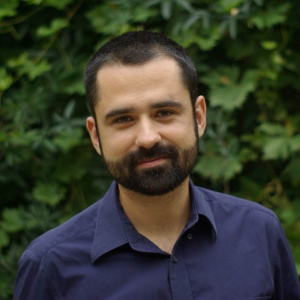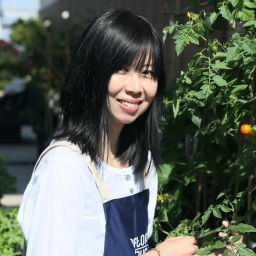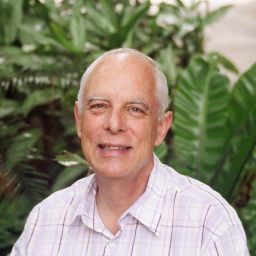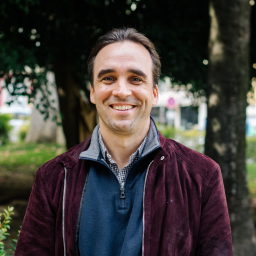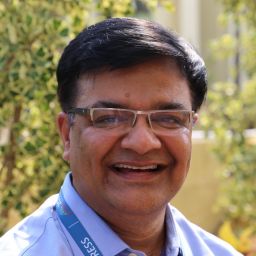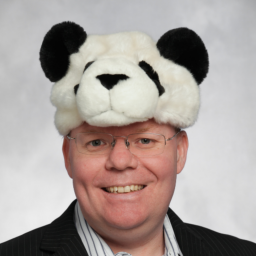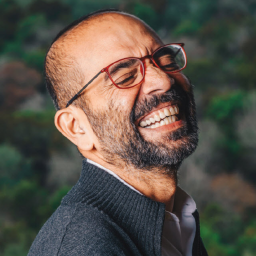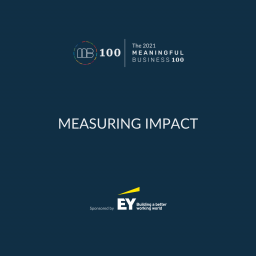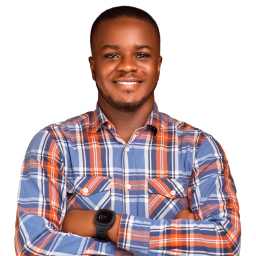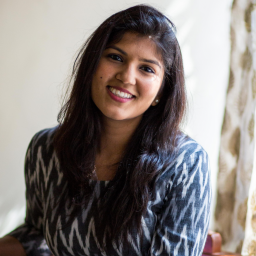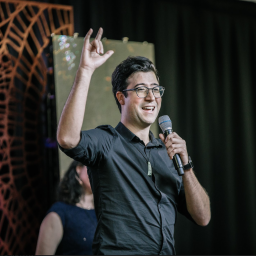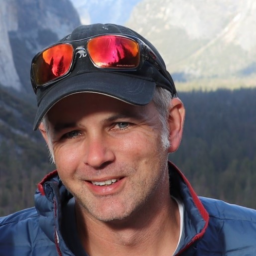Meaningful Business (MB:) Please tell us a bit about your background.
Sofie Blakstad (SB): I was born in London in 1966, have lived in 5 countries and am now more or less settled in Denmark with my cats! Like most people my age, I didn’t go to university and did manual jobs before starting work in an office.
I started my first business at 23. It didn’t do too well, but I taught myself programming as a result and ended up in banking by accident. I was impatient with things that didn’t work, so I ended up fixing systems first, then businesses.
While I was at Citi I was responsible for delivering infrastructure to Africa, and saw first-hand how difficult it is for banks to help rural businesses. Then, when blockchain came along, I saw the opportunity for alternative infrastructure. I was writing my second book about the opportunity when I realised books don’t change anything, so hiveonline was born – to fix economies.
When I left my very well paid job and legendary expense account my boss couldn’t believe it, but I’d worked for eight international banks in 60 markets by then and knew that banks weren’t going to come up with the answer either.
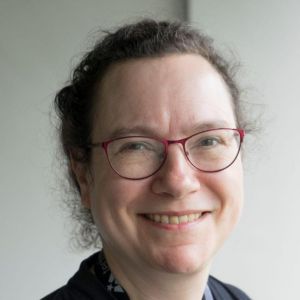
Sofie Blakstad, CEO of hiveonline
MB: Please introduce your business and the problems you’re trying to solve.
SB: Without digitisation, African farmers can’t get access to the things they need to make their farms successful – crop inputs like seeds and fertilisers, or credit to buy either inputs or equipment. They lose out to middlemen paying low prices for crops at the farm gate and pocketing the difference. Lenders won’t lend because of their lack of credit history and sectoral risk. Farmers are trapped in generational poverty, and job prospects for young people are scarce. Yet African farmers have access to more arable land than they can farm, and Africa’s a net importer of food, which is nuts.
We’re the first decentralised finance solution for African smallholder farmers, bringing them into the digital economy and efficient markets with blockchain and advanced analytics. We’re replacing paper with a community based app that gives everyone an account, an ID and a digital history without needing individual phones – it works on a minimum of one device per group. We help lenders assess creditworthiness, help buyers see where crops are going to be delivered, and help farmers both grow better crops through access to inputs, and get better prices for their crops through aggregation and leveraging community muscle.
Cooperative Manager in Nampula.
MB: What is your biggest challenge right now and what support do you need?
SB: Our biggest challenge at the moment is scaling the team fast to meet demand. At the end of March, we’ll be in as many countries as we have permanent staff, and while it is very scalable, we need more people to expand! We’re raising investment at the moment and while a lot of investors understand the opportunity, they’re understandably cautious because we’re a new technology, with a new business model, in a new market. We’re looking for someone who can lead the round and prove the rest of them right!
Of course regulation is also a consideration, and we closely monitor changing attitudes to our technology, as well as advising governments and international bodies on economic opportunities and risks resulting from blockchain and associated technologies, which helps to keep us engaged in the conversation.
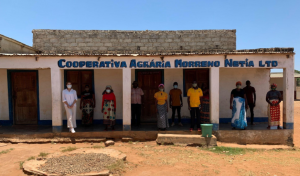
Cooperative in Nampula.
MB: What is your ambition for the future of your business?
SB: Ultimately, our goal is to make communities not just resilient and sustainable, but to help them mature into their own community economies. There needs to be sufficient educational and professional opportunities so that kids don’t feel their only options are leaving for the city or picking up a rifle. We’ve seen that women entrepreneurs invest in sustainable infrastructure like solar and irrigation, as well as improving education, and we know that with the right resources, they’ll put more back into their communities. Africa can, and should, be food secure AND a net exporter of food.
That requires financial infrastructure to support community finance, so we’re providing that infrastructure and digitising the barter economy. We’ve started down this road with our vouchers, which can represent inputs in traditional aid style distribution, blended finance or extended credit (including credit based on natural capital, which is really exciting).
One of the key advantages of our tech is our ability to manage alternative value, such as commodities and farming inputs, in a frictionless way that allows us to transact without the need to use money as a unit of account. That means farming communities can leverage the capital and future produce they have much more effectively, without the need to lean on the banking system – although it also gives them access to formal credit when they need it.
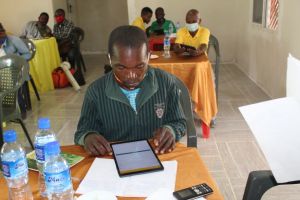
Cooperative Managers receiving training.
MB: What is your advice to other leaders who want to combine profit and purpose?
SB: I would ask leaders who are just working for profit, what’s the point? These days, you’re either part of the solution or you’re part of the problem. Having said that, investors are catching on to the importance of impact more slowly, so funding is still a challenge.
Find a model that makes money early on, because you’re going to have to do a lot of learning before you develop the technology and business model to build something that can credibly survive. We wouldn’t have got this far without both investment and earning, and we still need more capital to expand. Don’t expect money to fall into your lap, however compelling your story is, because donors and investors alike need to see convincing evidence that your model works before they will put money in. Whatever you do, listen to your customers – your idea of what’s needed to make an impact is almost certainly wrong, but people can tell you what they need.
Other than that, if you have passion for it, do it. I have made some objectively not sensible decisions to keep going and a more sensible or less passionate person would have given up. Survivors in this business are the exception; be realistic about your odds and if it matters to you, sometimes ignore the odds and keep fighting anyway.
________
Quickfire Questions
MB – Tell us a mistake you’ve learned from:
SB: I thought we’d have to get traction in the Nordics, where we’re headquartered, before anyone would invite us into Africa. That was wrong and I wasted money building something for a market that doesn’t really need it. The key learning there is to focus on the thing you plan to end up doing, and figure out how to do it, rather than wasting resources on an interim step that won’t achieve your longer term goals.
MB – How do you spend your time away from work?
SB: What time away from work? OK, I’m trying to be more disciplined – long walks, opera, cycling, cooking and singing to the cats. And I’m working on book #3.
MB – What’s the best piece of advice you’ve ever received?
SB: Listen to advice, but don’t worry about what people think about you – their advice may be good but their opinion of you as a person only matters to them.
MB – What is the one book everyone should read?
SB: Requiem for a Woman’s Soul. It’s a fictionalised story about one of the disappeared in South America (probably Argentina), but it clearly describes the helplessness of ordinary people in the face of the inexplicable cruelty of oppressive and autocratic authority figures. Something we should all be aware of, however painful.
MB – What is something you wish you were better at?
SB: So many things! But it would really help if I had a better memory.
MB – What’s one thing you want to achieve in 2022?
SB: I’ll be pretty happy if we see 100,000 farmers receiving better crop prices, but that’s just the beginning.
________
Discover the other leaders recognised on the 2021 MB100, for their work combining profit and purpose to help achieve the United Nations Global Goals, here.


